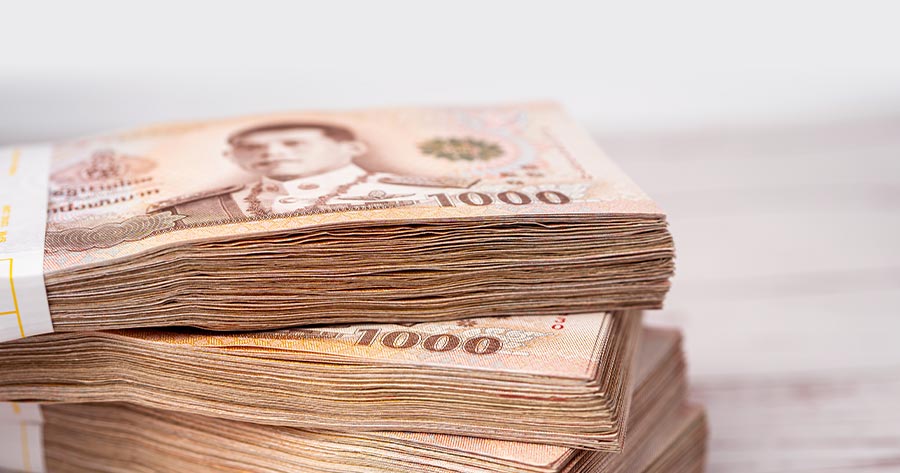To accelerate Thailand’s economic growth which has been hindered since the COVID-19, strengthening the Thai baht has been a talking point among economists for a while. Given the current administration is pushing for an interest rate cut that stayed aloft at 2.50% for decades, the government will enter a discussion with the central bank with respect to inflation target and the expeditious appreciation of Thai baht in the coming week.
As the second-largest economy in Southeast Asia, Thailand’s inflation was at 0.35% last August while growing slower than its neighbors, with household debts amounting to a staggering 90.8% of the GDP.
The government has deployed stimulus measures that include the acclaimed THB 450 billion handout and the recently postponed minimum wage adjustment, in hopes of a 2.6% growth. Meanwhile, Mr. Thanavath Phonvichai, President of the Thai Chamber of Commerce University, expected such measures would add 0.2 to 0.3 percentage points to the growth tally.
Thailand, however, earns its GDP mostly from export and tourism sectors. Influence of the reinforced baht has been immediately unpleasant to export competitiveness, more notable in the agricultural and food sectors.
As such, the Thai Chamber of Commerce has called for the stabilization of Thai baht as the present strength – having gained 13% against the USD, sitting around 32.8 which is the strongest in almost two years, has proven harmful to the above industries. Additionally, the Chamber has reevaluated its forecast of 2024 growth from 2.5% to 2.6-2.8% as the policies rolled out.
Further, Thai business operators also exert pressure on the central bank to stabilize the rapidly-beefed up currency. Otherwise, the 4Q growth may be undesirable.
In such a development, it would be advisable for the central bank to apprehend the baht and maintain cohesion with the domestic and global economy. Mr. Sanan Angubolkul, Chair of the Chamber of Commerce, recommended an applicable level of 34 baht to a dollar.
Mr. Sethaput Suthiwartnarueput, the 24th Governor of the Bank of Thailand, nonetheless argued that the current strength of Thai baht is not as critical to exporters, further explaining that the BOT has been observing the Thai currency. However, the increasing strength and volatility were subsequent to the weakening dollar.



